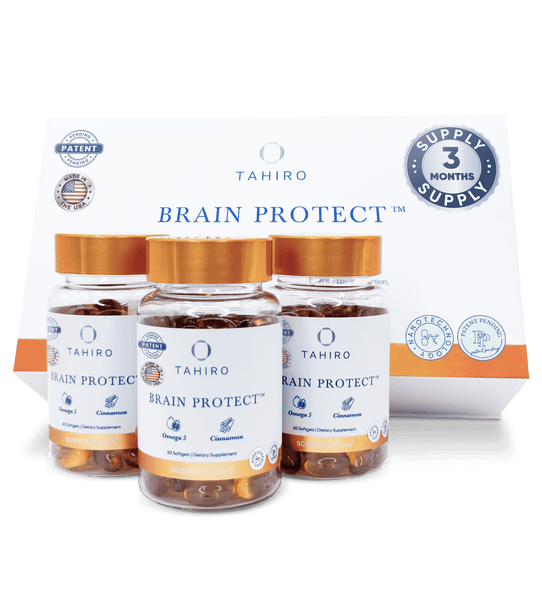Ever wondered if a simple game like Mahjong could do more than just pass the time?
In a world where cognitive decline, memory lapses, and mental fatigue are becoming more and more common, especially for older adults and their caregivers, the search for brain-boosting activities is more urgent than ever. While crossword puzzles and Sudoku get a lot of attention, Mahjong, the tile-based game of skill, memory, and strategy, is quietly making waves in scientific circles.
Could playing Mahjong be one of the easiest, most enjoyable ways to support brain health?
Let’s dig into the science.
Key takeaways
- Mahjong is more than just a game—it’s a cognitive workout that challenges memory, attention, and pattern recognition.
- Playing Mahjong regularly is associated with slower cognitive decline, improved memory, and higher mental alertness in older adults.
- Studies show Mahjong may help prevent or delay the onset of mild cognitive impairment (MCI).
- The game supports executive function, (skills like planning, decision-making, and organization).
- It also fosters social engagement, which is another powerful brain health booster.
When paired with other brain-boosting lifestyle choices, such as nutritional support from Tahiro’s Brain Protect, the cognitive benefits of Mahjong may be even more powerful.
What is Mahjong and What’s the Secret to Playing It?
Mahjong is a fast-paced, tile-based strategy game that originated in China. The game involves matching tiles with various symbols on them. It’s usually played by a group of four people, although it can sometimes be played by just two or three people. There are a few different versions of the game, which vary in their specifics but the cognitive demand remains consistent: identifying patterns, recalling tile positions, and adapting quickly to changing situations.
It’s not just the rules that sharpen the mind—it’s the pace, memory requirement, and focus needed in every session. These features make Mahjong particularly suited to supporting and even boosting cognitive health.
How Mahjong Supports Brain Health
Let’s break down five science-backed ways Mahjong can strengthen your brain, especially in aging adults and their caregivers.
1. Improves Memory and Delays Cognitive Decline
In a 12-week randomized trial, elderly adults who played Mahjong 3 times a week saw significant gains in memory, attention, and executive function—far beyond those who didn’t play the game【1】. Mahjong continuously exercises working memory by requiring players to remember previous moves, recognize patterns, and anticipate the strategies that their opponents may use.
This type of memory stimulation pairs well with clinically studied compounds like Phosphatidylserine and Ginkgo Biloba, both featured in Brain Protect (Cinnamon)—formulated to support mental clarity and memory in aging adults.
Even 10 years later, long-term Mahjong players scored higher on cognitive tests than non-players by as much as 0.893 MMSE points【2】—which represents a small but statistically significant edge in brain aging.
2. Reduces Risk of Mild Cognitive Impairment (MCI)
People with MCI experience subtle but noticeable declines in cognitive functions like memory and problem-solving. This condition is often a precursor to dementia, although not everyone with MCI will progress to more severe cognitive impairment.
Frequent cognitive stimulation may delay or even prevent the onset of MCI. A study using data from over 6,000 seniors in the CLHLS found that playing Mahjong regularly was associated with a lower risk of developing MCI, particularly in adults aged 65+【3】.
3. Boosts Executive Function and Decision-Making
Mahjong requires players to plan moves, assess risks, and adapt strategies, which directly engages the prefrontal cortex—the area of the brain responsible for decision-making, impulse control, and judgment. These are exactly the areas that tend to decline with age.
In fact, researchers observed that seniors who played Mahjong performed better on problem-solving tasks and cognitive flexibility tests compared to peers who played less demanding games【4】.
4. Enhances Social Engagement for Cognitive Protection
Social interaction is crucial for maintaining brain health. Social isolation can increase dementia risk by up to 50%, according to global health studies【5】. Mahjong combats this by offering structured, enjoyable social interaction. Whether played in community centers or online with friends, Mahjong builds emotional bonds and exercises the brain through dialogue and cooperation.
Even online multiplayer Mahjong has been shown to provide cognitive stimulation similar to face-to-face games when played with others【6】. Playing single-player Mahjong (which is not truly Mahjong at all) or playing against AI opponents won’t offer the same benefits as playing with other humans. The social aspect of Mahjong is a major part of how it benefits brain health.
5. Promotes Neuroplasticity and Brain Adaptation
When we learn anything new, our brains form new connections. This is known as neuroplasticity, and it’s essential for maintaining brain health, especially in older adults. Playing Mahjong promotes neuroplasticity. As players learn new tile combinations, recognize changing layouts, and adjust tactics in real time, they’re literally rewiring their brains.
As people age, they generally show thinning of the cortex, which is the outer layer of the brain. The cortex is responsible for the majority of cognitive function. Studies show that regularly playing mentally demanding games like Mahjong can slow age-related cortical thinning【7】.
To amplify this neural rewiring process, combining such mental activity with neuroprotective nutrients like Hemp Oil (found in Brain Protect – Hemp) may support long-term cognitive flexibility and adaptation.
Brain Rewired: How Mahjong Sparks New Neural Connections
-
A scoping review of 53 studies found that older adults who played Mahjong had better cognitive, psychological, and functional outcomes, with improvements in short-term memory as well as general cognition.
SpringerLink
-
A longitudinal study (2008–2018; CLHLS) showed that a higher frequency of playing Mahjong was positively associated with better cognitive function (as tested on the MMSE), quality of life, and self-care ability in older adults.
Frontiers
-
Another study of 7,308 older adults in China showed that regularly playing Mahjong or card games was linked to significantly better cognitive function, including attention, calculation, language, and total MMSE score.





